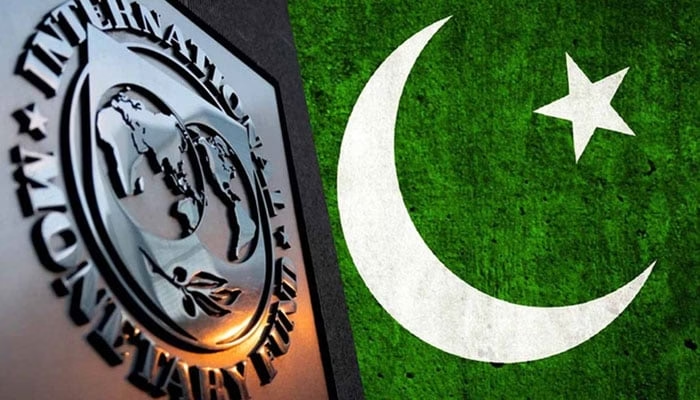The International Monetary Fund (IMF) has expressed serious concerns regarding Pakistan’s provincial budget deficits and specific provincial programs. During the fourth day of ongoing discussions between Pakistan’s financial representatives and the IMF, the focus turned to evaluating the financial performance and budget management of Pakistan’s provincial governments. The IMF highlighted objections to two significant areas: the solarization initiatives led by provincial governments and the procurement of wheat at the provincial level. This scrutiny falls within a broader review of Pakistan’s financial commitments under IMF guidance, particularly the fulfillment of the provincial surplus budget target.
Shortfall in Provincial Surplus Budget
From July to September, the provincial budgets were expected to generate a collective surplus of 342 billion rupees to help Pakistan meet its fiscal stability goals. However, actual figures revealed a stark contrast, as the surplus reached only 159 billion rupees, highlighting a notable shortfall. The main contributor to this deficit was Punjab, which reported a budget gap of around 160 billion rupees. The IMF pointed out that the provincial deficit challenges Pakistan’s broader economic stability efforts and raises questions about budget management and expenditure practices across the provinces.
According to sources from Geo News, the IMF delegation was informed about legislative steps that aim to address these issues in the near future. The Pakistani government assured the IMF that Punjab and Sindh are progressing towards passing legislation on agricultural income tax collection. This move is expected to increase provincial revenues, thereby contributing positively to Pakistan’s financial stability and supporting its commitments to the IMF.
Breakdown of Provincial Shortfalls
The IMF noted that the collective provincial surplus lagged by 182 billion rupees. Breaking down this deficit, Sindh faced a gap of 131 billion rupees, Khyber Pakhtunkhwa 103 billion rupees, and Balochistan 85 billion rupees. Such significant shortfalls not only reflect fiscal management issues but also underscore the need for efficient revenue collection and expenditure practices within each province. The IMF raised concerns that these shortfalls might hinder the broader goals of economic stability and fiscal consolidation in Pakistan.
IMF’s Concerns on Solarization and Wheat Procurement
During the talks, the IMF delegation expressed reservations about the solarization initiatives undertaken by provincial governments and the procurement of wheat at the provincial level. The IMF argued that these programs, though beneficial in intent, might strain provincial budgets if not managed effectively. Solarization, for instance, is a high-cost project that requires substantial investment, while wheat procurement often involves subsidies that add to fiscal pressures. The IMF suggested that these initiatives should be approached with caution to avoid further burdening provincial budgets.
Low Spending in Smaller Provinces
Another point raised by the IMF was the low spending on essential services, such as health and education, particularly in smaller provinces. In Khyber Pakhtunkhwa, for instance, low health and education spending was attributed to vacant posts, leading to underspending in crucial areas. Additionally, development spending across these provinces remained low in the first quarter of the fiscal year. Pakistan’s representatives assured the IMF that development spending would likely double in the upcoming quarter, addressing concerns of inadequate investment in key public sectors.
Upcoming Discussions on Agricultural Income Tax
To address these financial challenges, discussions on taxes on agricultural income and provincial expenditures under the National Fiscal Compact are scheduled for the next day of talks. The implementation of an agricultural income tax has been a topic of interest for the IMF, as it is expected to enhance revenue generation and lessen fiscal burdens on provincial budgets. If passed, this legislation will initially focus on Punjab and Sindh, with the potential for expansion across other provinces.
IMF’s View on Benazir Income Support Program
Despite the concerns over budget deficits and program spending, IMF officials expressed satisfaction with the Benazir Income Support Program, recognizing its impact on alleviating poverty and supporting low-income communities. This program is viewed as a positive example of effective government expenditure and aligns with the IMF’s emphasis on social safety nets.
Moving Forward: Striking a Fiscal Balance
The IMF’s mission in Islamabad underscores Pakistan’s ongoing efforts to strike a balance between fiscal responsibility and socio-economic development. Provincial budget performance, efficient expenditure management, and effective revenue collection are vital to Pakistan’s economic stability and growth. The IMF’s concerns and recommendations provide Pakistan with a roadmap to strengthen its fiscal framework at the provincial level while ensuring sustainable development across the country.
With the IMF delegation continuing its discussions with government officials, these negotiations mark a crucial phase in determining the economic direction of Pakistan’s provincial policies and budgetary priorities. The outcomes of these talks could shape not only the financial health of the provinces but also Pakistan’s ability to meet the commitments set forth in its IMF agreements.



